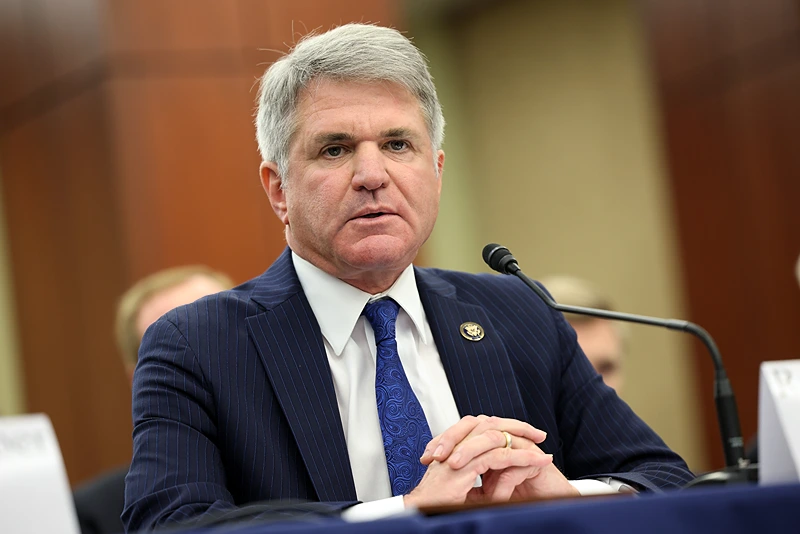
OAN’s Brooke Mallory
4:49 PM – Sunday, July 16, 2023
GOP Texas Representative Michael McCaul, who serves as chairman of the House Foreign Affairs Committee, stated on CBS’s “Face the Nation” on Sunday that he thinks the National Defense Authorization Act would become a “bipartisan bill.”
Since 1961, the National Defense Authorization Act (NDAA), which authorizes funds and establishes policy for the Defense Department, has been approved with broad bipartisan support. However, the law was passed by the House on a near-party-line vote on Friday, with four Republicans voting against it and four Democrats voting for it.
Moderator Margaret Brennan hounded the representative and demanded additional information about the NDAA.
“I want to start on the National Defense Authorization Act, which passed the Republican controlled House and it was… It drew a lot of attention this week because of the social policy issues attached to it. So this is a bill, it pays military personnel, does things necessary for national security. Once this goes to the Senate, they’re going to chop out all those things, you know that. It comes back to you in the House. Are you confident that Republicans can get this necessary piece of legislation through without having to turn to Democrats to help you get it over the finish line?” Brennan said.
McCaul answered by saying, “…We saw the session when the Democrats had the majority, they passed a very partisan, you know, NDAA bill, went over to the Senate, you know, I’m on the conference- we did the conference committee, and traditionally the more partisan minutes get stripped out. At the end of the day, this always ends up as a bipartisan bill. But there were some- certain policies like for instance, the Hyde Amendment since 1980 not to fund taxpayer abortions our members felt was very important to put in there. I think that’s one that will survive.”
The back-and-fourth conversation between the two continued on.
Brennan: “Well, you’re talking about the provision that would restrict funding to allow service members to travel.”
McCaul: And pay expenses, yeah.
Brennan: But it doesn’t in any way, the Pentagon policy, fund abortions.
McCaul: Well, you know, I wish they hadn’t…
Brennan: Or fertility services.
Even if other contentious additions are removed from the final measure, McCaul went on to explain that he strongly feels the provision that prohibits the Pentagon from supporting travel fees for military personnel seeking abortions outside of the state would be “one that will survive.”
“It will be a bipartisan bill,” he repeated himself. “I think there’s nothing more important than our national defense and our military.”
Other GOP policy revisions that were approved included the rejection of healthcare coverage for sex reassignment procedures and hormone therapies for service members who identified as transgender, as well as the dismantling of the Pentagon’s diversity, equality, and inclusion (DEI) offices and staff.
The Democrat-controlled Senate is reportedly set to begin debating the plans sometime this week.
The House rejected proposals involving U.S. assistance to Ukraine by wide margins, as well as a proposal from Rep. Marjorie Taylor Greene (R-Ga.) to prohibit the U.S. from providing cluster bombs to Ukraine and another from Rep. Matt Gaetz (R-Fla.) who hoped to halt security assistance to Ukraine during its ongoing war with Russia.
“It’s very dangerous to have these amendments when Ukraine is in the crossfire trying to push the aggression of Russia back in the counteroffensive,” McCaul said. “It failed, and I think that’s good news.”
Stay informed! Receive breaking news blasts directly to your inbox for free. Subscribe here. https://www.oann.com/alerts

